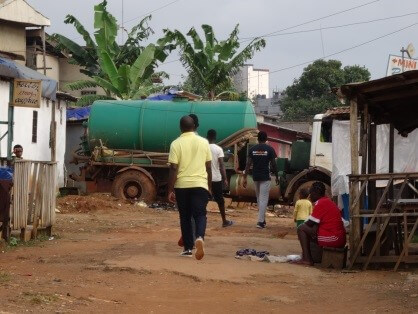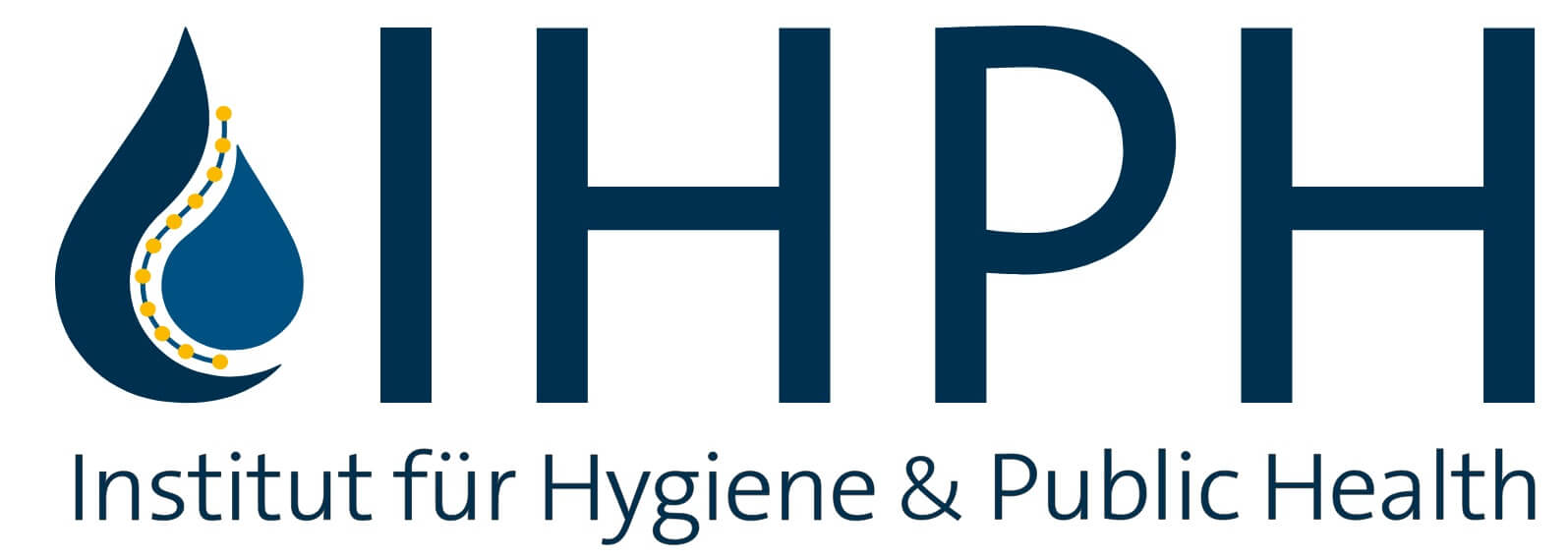



Fotos: Andrea Rechenburg 2013-2018
Wasser ist elementar für die menschliche Gesundheit und die sichere Wasser- und Sanitärversorgung unabdingbar für das
Gemeinwohl. Sowohl Gesundheit als auch Entwicklung haben zahlreiche Dimensionen und die Forschung der AG ist deshalb
inter- und transdisziplinär ausgerichtet. Neben Ökologie und Management natürlicher Ressourcen werden in Kooperation
mit internationalen Partnern schwerpunktmäßig geographische, soziale und kulturelle Aspekte von Wasser, Sanitation und
Hygiene (WASH) erforscht.
Aktivitäten der AG unterstützen auch die Arbeit der WHO, zum Beispiel im Bereich von WASH und Schulen, sowie in der praktischen
Erprobung der Sanitary Inspection Sheets im Feld. Zudem ist die AG im Masterstudiengang Global Health am
Universitätsklinikum tätig. Mit dem Zentrum für Entwicklungsforschung (ZEF) wird im NRW Forschungskolleg One Health
and Urban Transformation kooperiert.
Das GeoHealth Centre hat im SANSED-Projekt im vietnamesischen Mekongdelta zu dezentraler Wasser- und Sanitärversorgung
gearbeitet und war im GlobE Wetlands-Projekt bis 2018 in Ostafrika tätig. Im Rahmen dieses Projektes promovierten
Frau Dr. Carmen Anthonj und Frau Dr. Sophie-Bo Heinkel.
Aktuell wird in der AG das F&E-Vorhaben „INTEWAR - Innovative Technologien zur Eindämmung wasserassoziierter Krankheiten“
in Kamerun durchgeführt. Die AG ist zudem am Aufbau des „German-West African Centre for Global Health and Pandemic Prevention”
(G-WAC) beteiligt.
In der Arbeitsgruppe sind zur Zeit Andrea Rechenburg,
Timo Falkenberg,
Marie Scholz
und Christian Timm tätig.
Neuere Publikationen aus der AG (Auswahl)
Perez Arredondo A M, Yasobant S, Bruchhausen W, Bender K, Falkenberg T (2021): Intersectoral collaboration shaping One Health in the policy agenda: A comparative analysis of Ghana and India, One Health: doi:10.1016/j.onehlt.2021.100272
Ntajal J, Evers M, Kistemann T, Falkenberg T (2020): Influence of human–surface water interactions on the transmission of urinary schistosomiasis in the Lower Densu River basin, Ghana , Social Sci-ence and Medicine 23: doi: 10.1016/j.socscimed.2020.113546
Grossi V, Rechenburg A, Enkhtsetseg S, Schmoll O (2019): Improving health and learning through better water, sanitation and hygiene in schools: an information package for school staff, World Health Organization, Regional Office for Europe, Copenhagen
Letah Nzouebet W A, Soh Kengne E, Djumyom Wafo G V, Wanda C, Rechenburg A, Kengne Noumsi I M (2019): Assessment of the faecal sludge management practices in households of a sub-Saharan Africa urban area and the health risks associated: the case study of Yaoundé, Cameroon, International Journal of Biological and Chemical Sciences 13(5): 1-23
Sophie-Bo Heinkel (2018): Therapeutic Effects of Wetlands on Mental Well-Being - The concept of therapeutic landscapes applied to an ecosystem in Uganda
Carmen Anthonj (2017): MOSQUITOES, MALARIA AND MALADIES AMONG MEN USING MARSHES Is the Contraction of Diseases in Wetlands a Question of Use? Behaviours, Risk Assessments and Per-ceptions from the Ewaso Narok Swamp, Kenya.
Anthonj C, Rechenburg A, Höser C, Kistemann T (2017): Contracting Infectious Diseases in Sub-Saharan African Wetlands: A Question of Use? A Review, International Journal of Hygiene and Envi-ronmental Health 220: 1110-1123
Grossi V, Klimschak E, Rechenburg A, Shinee E, Schmoll O (2016): The situation of water, sanitation and hygiene in schools in the pan-European region, WHO Regional Office for Europe, Copenhagen
Letah Nzouebet W A, Kengne Noumsi I M, Rechenburg A (2016): Prevalence and diversity of intesti-nal helminth eggs in pit latrine sludge of a tropical urban area, Journal of Water, Sanitation and Hygiene for Development 6(4): 622-630
Wilbers G J, Sebesvari Z, Rechenburg A, Renaud F G (2013): Effects of local and spatial conditions on the quality of harvested rainwater in the Mekong Delta, Vietnam, Environmental Pollution 182 (0): 225-232
